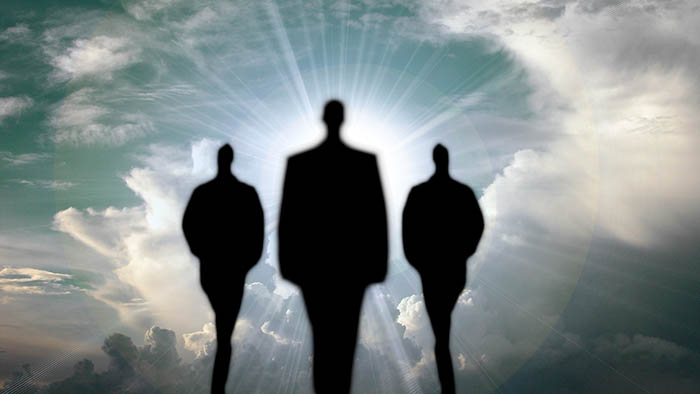It is said that there are two certainties in life – death and taxes. Ironically both subjects tend to be off limits at dinner parties. Our death is something we don’t want to talk about, let alone think about. Woody Allen once quipped: “It’s not that we’re afraid to die. We just don’t want to be there when it happens.” Yet Malcolm Muggeridge, a former British journalist and author, observed: In earthly terms death is the only certainty.
I don’t want to be morbid today, but it is a subject we need to consider. And what better time than during this season of Easter!
Our creed states: ‘I believe in… the resurrection of the body and the life everlasting’. What does this really mean? What happens if we’re burnt, or buried, or our body is destroyed? And, if one day we are to be raised, what kind of body will we have? The subject is complex and our answers can easily become no more than confused ramblings.
Consider what Paul writes in the clearest biblical statement on the resurrection. In 1 Corinthians 15:21 we read: For since death came through a man, the resurrection of the dead comes also through a man. For as in Adam all die, so in Christ shall all be made alive.
GOODNIGHT
When we attach ourselves, by faith, to Jesus, we can be assured that even though our bodies may rot and decay in a grave, the day will come when we too will be raised from the dead. On that awesome day when Christ will be seen in all his majestic power, he will give us a new body. For God’s people, death is not ‘Goodbye’, but ‘Goodnight’.
Jesus’ resurrection foreshadows the resurrection from the dead of all his people. This is the theme that Paul addresses in 1 Corinthians 15:35ff. He writes: Someone may ask, “How are the dead raised? With what kind of body will they come?” How foolish, what you sow does not come to life unless it dies. When you sow you do not plant the body that will be, but just a seed, perhaps of wheat or of something else.
When I was in Kindergarten class, my family was living in the country. I remember carrying out my first formal scientific experiment. We were given a saucer, cotton wool and some wheat. We put the wheat on the cotton wool, wet it and took it home. Over the next few days I was amazed at what I observed. Out of the rotting, smelly grain grew new life.
CHRISTIAN DEATH
In the present order of things death needs to take place before new life occurs. The death of the first is the means of effecting change. When you sow, you do not plant the body that will be, but just a seed… There’s a process of death before life, even in nature.
And Paul continues: God gives it a body as he has determined, and to each kind of seed he gives its own body. All flesh is not the same: men have one kind of flesh, animals have another, birds another and fish another (vv.38, 39). It is God’s prerogative to bring about change and give the sown seed its appropriate plant body as he wills.
Indeed, he is used to creating bodies appropriate for different kinds of environments – for men and women and for animals who live on the land, for birds that fly, and for fish that live in water. Each is perfectly fitted for its environment.
THE AGE TO COME
In the same way, our earthly bodies are suited for our earthly existence, but they will be useless in the perfection of the age to come. Our present bodies need to be buried when their work is done here, so that out of their raw material God can produce a new, spiritual body perfectly suited for the new age.
‘Have no doubt,’ says Paul, ‘the resurrection of our bodies will be a reality. It makes sense. It’s consistent with what we can observe of the various elements of the present natural order. It means there is continuity between our present and future existence.’
This is important for us to know. It means for one thing that God treats every aspect of his creating work seriously – nothing is lost, for everything has a meaning. There’s not some massive disjunction between the material and the spiritual world. This suggests that keeping as fit as we can now is an important part of worship of God. I’m not suggesting that we all go out and join ‘Fit for Him’ exercise classes, but certainly the continuity between the present and the future order should encourage us not to abuse our bodies.
What we do in every aspect of our life now matters to God.
© John G. Mason

